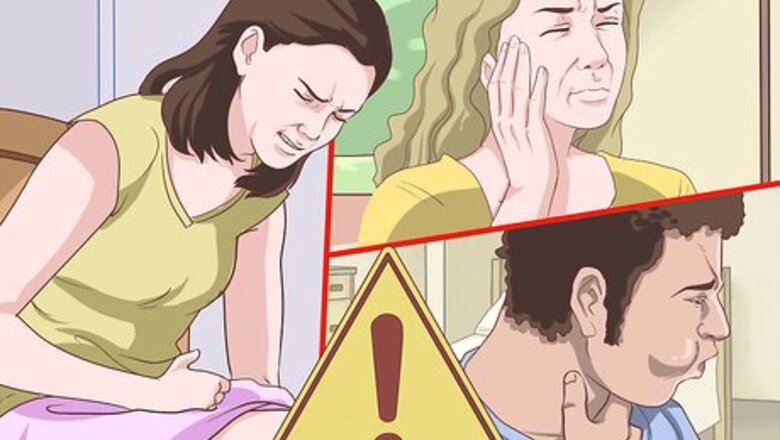
views
- Tilt your head back and take a sip of water while looking in a mirror. If there is any swelling, tenderness, bumps/lumps, or nodules at the base of the neck, call your physician.
- The best way to check your thyroid is to get your doctor to test your Thyroid Stimulating Hormone (TSH) levels to determine if there’s an issue.
- Thyroid disorder symptoms include feeling too cold or warm, unexpected weight gain or loss, exhaustion, and a rapid heart or breathing rate.
Knowing When to Check Your Thyroid
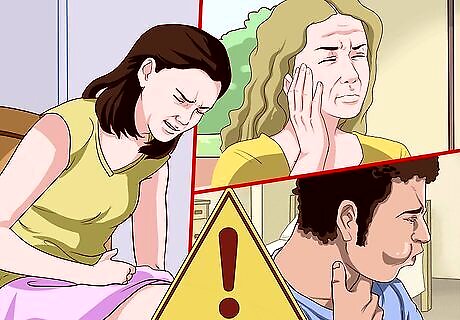
Monitor for symptoms of hypothyroidism. Hypothyroidism is the condition where you have an underactive thyroid. All forms of hypothyroidism can be caused by viral infections, radiation damage, some medications, pregnancy, and other rarer causes. Symptoms of an underactive thyroid include: Severe and constant fatigue Changes in the menstrual cycle Constipation Depression Dry, coarse hair Hair loss Dry skin Disturbed sleep cycle, such as wanting to sleep all the time Intolerance to cold Decreased heart rate Muscle weakness Unexplained weight gain or difficulty losing weight
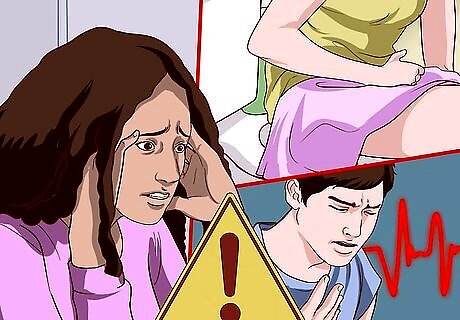
Watch for symptoms of hyperthyroidism. Hyperthyroidism is the condition where you have an overactive thyroid. This condition can be a result of Grave’s disease, tumors, thyroiditis (inflammation), thyroid nodules, and some medications. Symptoms of an overactive thyroid include: Rapid heart rate or palpitations Increased respiratory rate Frequent and loose bowel movements or diarrhea Fine hair that may be falling out Unexplained weight loss Nervousness, irritability, a feeling of high energy Anxiety or panic attacks Psychosis Moodiness Intolerance to heat Sweatiness Reddish skin which may be itchy

Understand the symptoms may be due to another condition. Remember that many of these symptoms are not specific to thyroid disease. Determine if you have multiple symptoms, or just a few. If you are unsure, go to your physician for tests. For example, gaining weight may be due to eating more or exercising less, and not due to thyroid disease. Feeling nervous or anxious may be due to a new job or an underlying mental health issue. Skin dryness can be due to low humidity or not enough healthy fats in the diet. Constipation can be due to not enough fiber in your diet or a number of digestive conditions while diarrhea can be due to digestive conditions or food sensitivities.
Checking Your Thyroid
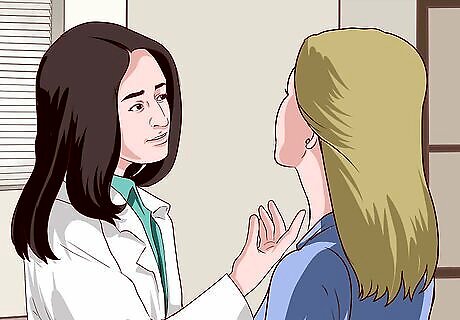
Examine your neck. Use a mirror to check the base of your neck. Focus the mirror on the lower part of your neck, between your voice box and collarbone. Tilt your head back and take a sip of water. If there is any swelling, tenderness, or bumps/lumps or nodules at the base of the neck, call your physician and let her know you are concerned about the finding and if you should be checked for thyroid disease. Make sure the lighting is good enough so that you can see clearly.

Check for long-lasting symptoms. Look for symptoms that last longer than two to three weeks. If your symptoms revolve around your monthly cycle, look for symptoms that continue longer than two to three cycles. For example, you may be constantly tired with no good explanation for it because you seem to sleep long enough and get enough rest. Being tired alone is not enough to indicate a thyroid problem, as tiredness and fatigue can be caused by many things.

Keep track of your symptoms. Use a large calendar on the fridge or a large notebook to record how many hours you slept and if you felt rested, when you get your periods, if you feel too cold or too warm, if you have gained weight or lost weight, or if you feel like your heart or breath is racing. Record what you were doing when you had that sensation. If you feel nervous or anxious, take a few minutes to assess if it seems to be because of events in your life or if it seems to be unexplainable. Thyroid disorders can be silent for a long time. The body has a number of mechanisms to compensate for thyroid dysfunction; however, don’t hesitate to ask your physician to run tests if you are concerned about your thyroid function.
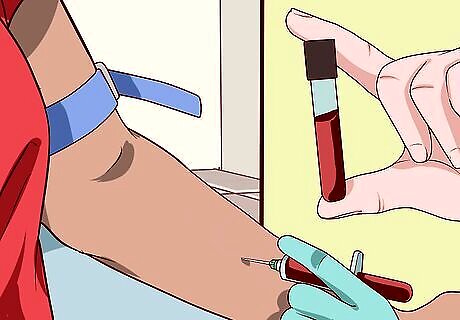
Have your blood checked by your doctor. The best way to check your thyroid is to get your doctor to test your blood. Your doctor can check for the levels of Thyroid Stimulating Hormone (TSH). You should also consider asking that your levels of T3 and free T4 be checked as well, because differences in these levels can give you more information about the condition of the thyroid. Since the thyroid is controlled via TSH from the pituitary, sometimes what looks like thyroid disease may actually be due to pituitary problems, though this is rare. Low TSH may indicate an overactive thyroid, while high TSH may indicate an underactive thyroid. High levels of free T4 or T3 may point to a hyperactive thyroid, while low levels may point to a hypoactive thyroid. Your doctor will be able to interpret your results and let you know where your TSH levels fall.
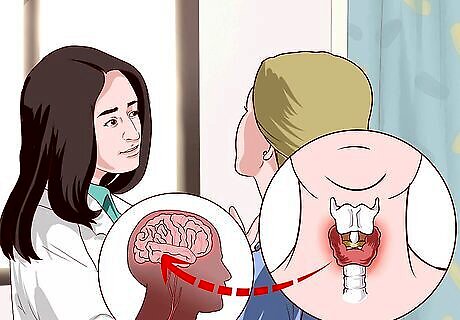
Be prepared for additional tests. Since pituitary conditions may be the underlying cause of thyroid problems, your doctor may order additional tests to look for other conditions. Depending on your specific situation, other tests may be ordered to determine a final diagnosis. These additional tests include: an iodine uptake scan, thyroid ultrasound, measurement of thyroid antibodies, or a thyroid needle biopsy if nodules are detected.




















Comments
0 comment